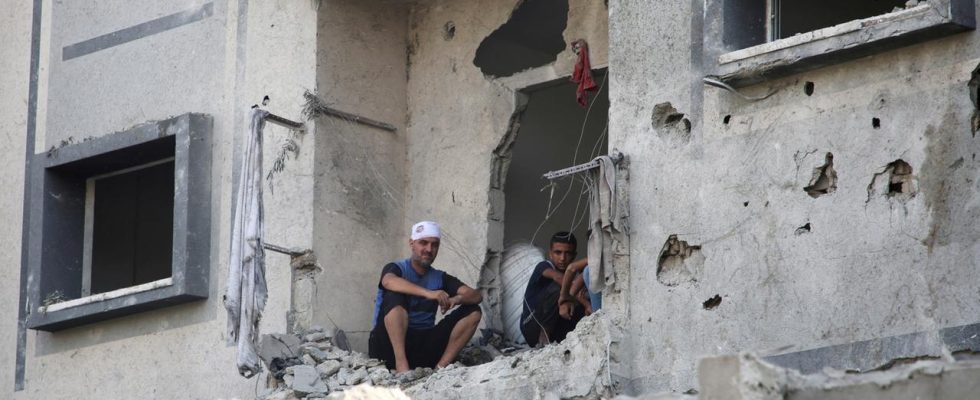Middle East talks are underway in two Arab capitals. Whether Israel launches an offensive on Rafah as announced could depend on those in Cairo. Prime Minister Netanyahu is in a quandary.
During these hours, the really big and the smaller questions will be discussed. While the meeting of the World Economic Forum in Riyadh, Saudi Arabia, is also about the future of the Gaza Strip, possible reconstruction, the participation of the Arab states and the role of the Palestinians in all of this, negotiations for a ceasefire are once again underway in Cairo.
The questions on the table in Cairo have been the same for months, the details are changing: How many hostages who are still in the hands of Hamas and other terrorist organizations will be released? How many Palestinian prisoners in Israeli prisons will be released? How long does the ceasefire last? Will Palestinian families be able to return to the largely destroyed north of the Gaza Strip? And: What does this mean for the Israeli offensive on Rafah, which, according to Israeli reports, is already being planned?
A means of pressure in negotiations?
Israeli Foreign Minister Israel Katz said on Channel 12 television that if an agreement was reached, the offensive would be postponed. “We will do whatever it takes to bring the hostages back. We are making all the preparations for the operation because that is what needs to be done, but I hope there will be an agreement,” Katz said.
It is unclear whether the numerous reports about an imminent offensive in Rafah are primarily a means of exerting pressure in negotiations over a hostage deal. More than a million people are still seeking protection in the city on the border with Egypt. The USA, among others, is demanding that they first be evacuated.
This is also why the President of the Palestinian Authority, Mahmoud Abbas, appealed to the USA in Riyadh to stop the Rafah offensive. All it takes is “a small blow” and everyone who sought protection in Rafah would flee, said Abbas. “That would be the greatest catastrophe in the history of the Palestinian people, and we hope that Israel will refrain from this action and refrain from this attack.”
Extremes threaten the end of the coalition
Israeli Prime Minister Benjamin Netanyahu is obviously in a quandary: On the one hand, almost seven months after the Hamas terrorist attack, he has not yet achieved any of his war goals. His far-right coalition partners reject major concessions – such as releasing large numbers of Palestinian prisoners – while at the same time pushing for the ground offensive in Rafah.
Finance Minister Bezalel Smotrich said in a video message and even threatened to end the government: “If they raise a white flag and give the order to capture Rafah, to complete the destruction of Hamas, for peace for the residents of southern Israel and everyone citizens of the country and for the release of the hostages – then the government no longer has the right to continue to exist.”
At the same time, Israel is currently emphasizing its efforts to allow more aid supplies into the Gaza Strip. According to the United Nations, an average of around 200 trucks a day came into the area in April – more than before.
“More people are coming to Gaza than ever before”
In recent weeks, humanitarian aid to the Gaza Strip has increased significantly, says Daniel Hagari, spokesman for the Israeli armed forces. In the coming days it will “increase even further” with food, water, medical supplies, shelter equipment and other relief supplies being brought. “More people are coming to Gaza than ever before,” said the military spokesman.
Nevertheless: According to UN figures, at least 20 percent of the people in the Gaza Strip still suffer from an acute lack of food. This is not only due to whether and how much relief supplies reach the coastal strip, but also to how they are distributed.
Jan-Christoph Kitzler, ARD Tel Aviv, tagesschau, April 29, 2024 2:36 p.m

